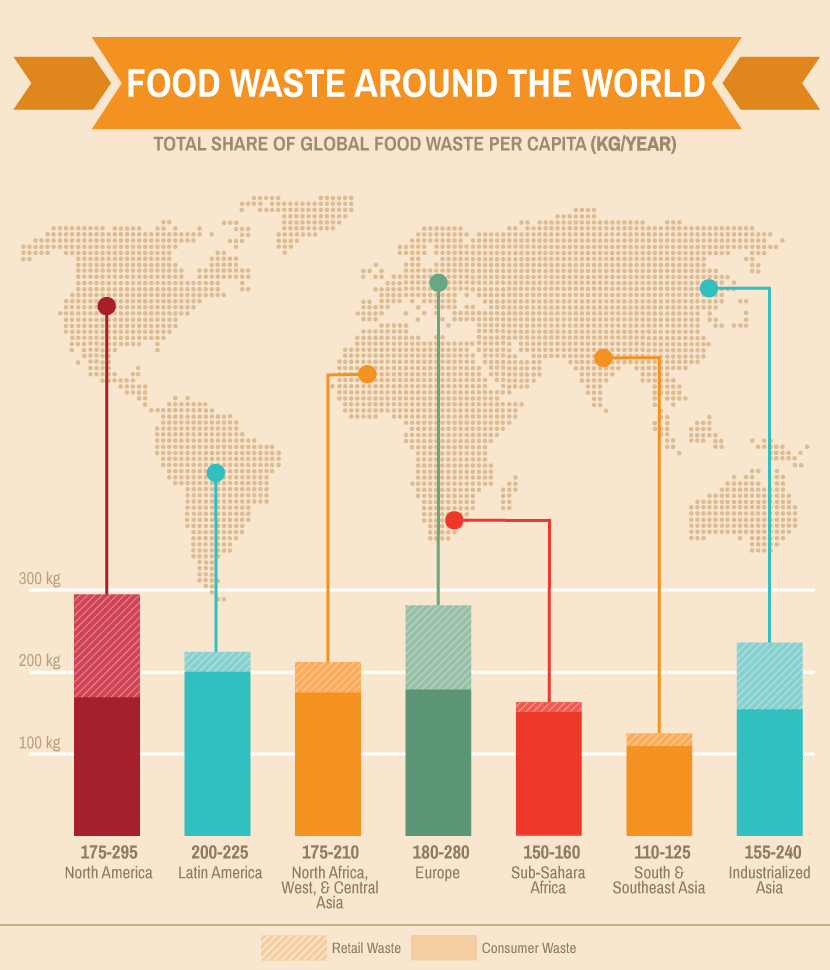How South Korea tackled food waste. It’s an incredible story.
South Korea, historically having one of the world’s highest rates of food waste, now recycles 95% of its food waste, up from 2% in 1995.
The problem of food waste is widespread throughout the world, not just in developed countries. One-third of all food intended for human consumption is wasted or lost, resulting in over 800 million people suffering from severe malnutrition. Wasted food has a negative impact on the environment, the economy, food security, and nutrition. Getting to the bottom of the issue remains a great challenge for the coming years.

In South Korea, Each South Korean generates more than 130kg of food waste a year. According to the Food and Agricultural Organization of the United Nations, per capita food waste in Europe and North America is 95 to 115kg. The South Korean government has taken radical measures to recycle the waste food in the past few years.
Using biodegradable bags to recycle food waste was made mandatory in 2013 after food waste was banned in 2005. A four-person family pays USD$6 a month for the bags, which helps encourage home composting and covers 60% of the program’s costs. This has increased food waste recycling from 2% in 1995 to 95% today. Recycled food waste can also be used as fertilizer, although some of it ends up as animal feed.
Food recycling has also been aided by technology in the country. 6000 bins in Seoul, the country’s capital, are equipped with scales and RFIDs, which weigh food waste as it is deposited and charge residents using their ID cards. In six years, the machines have reduced food waste by 47 000 tonnes.
Waste collected through the scheme is squeezed at the processing plant to remove moisture, resulting in biogas and bio oil. Using dry waste as fertiliser is helping the country’s urban farming industry grow.
Over 170 hectares of urban farms or community gardens have been established in the capital city in the past seven years (although this is a 2019 figure, the actual number may be higher). City government provides between 80% and 100% of startup costs, and now plans to install food waste composters.


